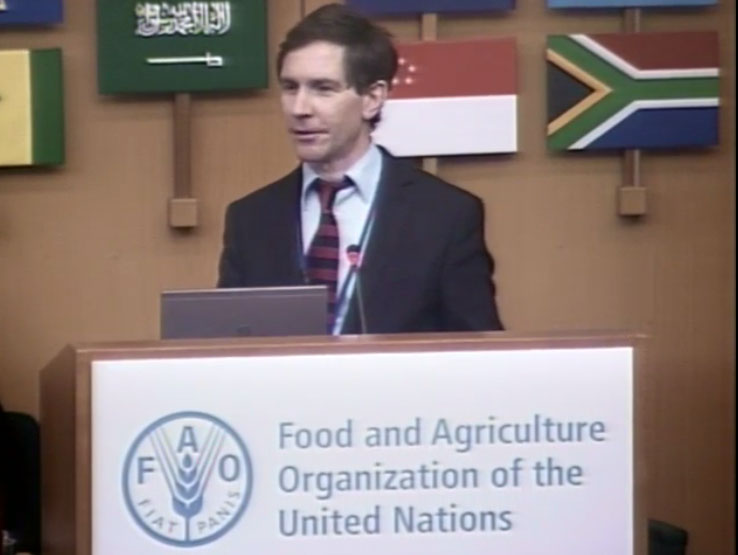STEPS member Dominic Glover spoke yesterday at the FAO’s International Symposium on “The Role of Agricultural Biotechnologies in Sustainable Food Systems and Nutrition”.
Dominic’s presentation focused on the need to ensure that agricultural biotechnology policies benefit smallholders. You can watch his presentation on the FAO website (skip to 2 hours and 7 minutes in).
From the summary:
“Why consider the impacts of biotechnology on small-scale farmers? Isn’t small-scale farming a relic of the past? Some policy makers and academics argue that small-scale farmers need either to take a ‘step up’ in their farming operations – intensify, enlarge, commercialise and become more productive – or ‘step out’ of farming altogether. According to this view, the major policy challenge in relation to smallholder farming is to find pathways out of agriculture for most of its practitioners, and pathways to large-scale agriculture for the few.
This is a debatable point. What is certain is that, today, many millions of rural people still depend heavily on agriculture for their livelihoods and food security. Agriculture can be a motor of economic growth and development in the wider economy. Moreover, times have changed since the days when industry was absorbing millions of unskilled workers. In the future there will be concerns not only about food security but about employment.
Meanwhile, many families with roots in rural areas exhibit a strong desire to keep hold of their land as a buffer against economic insecurity and a source of resilience. And farm-based rural livelihoods are diversifying to include off-farm and non-farm sources of income and livelihoods. So small-scale and family farm operations are unlikely to disappear overnight, if at all. So focusing policy on the needs and interests of small-scale farmers remains vital.”
You can find out more about the Symposium on the FAO website.
